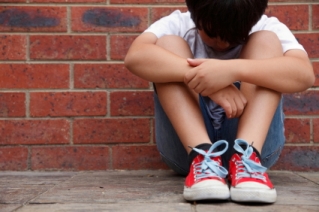
It's October. The weather is starting to change, we're planning Halloween costumes and starting to think about the holidays. But October is also now recognized as National Bullying Prevention Month. On the one hand, I'm thrilled that we are giving this critical issue such focused attention. But on the other hand, I am deeply saddened that bullying in our nation has reached such epidemic proportions.
We've all seen the heartbreaking and disturbing stories regularly making headlines on the news and in our local papers. It's way too often that we hear horrifying stories of teens committing suicide as a result of bullying, like the story a young girl posted about her sister, She was Bullied to death R.I.P., which has over 4.3 million views on YouTube. There was even a documentary film entitled Bully released in U.S. theaters earlier this year. Clearly, the bullying issue is getting the attention it deserves.
And everyone is working really hard to find solutions to the problem. Children and teens have been surveyed, research has been compiled and programs led by students, school administrators and bully experts are all attacking the issue. The Department of Education has hosted summits on bullying prevention and 48 states have now enacted anti-bullying legislation. Even celebrities are doing their part like Lady Gaga's Born This Way Foundation.
Yet the statistics are still staggering. According to the CDC, "Current estimates suggest that nearly 30% of American adolescents reported at least moderate bullying experiences as the bully, the victim, or both." Unfortunately, 83% of these bullying incidents receive no intervention and continue to happen. I could go on and on with these kinds of sobering statistics.
Can the news be any worse? Well, I honestly believe that behind the really complex and pervasive bullying issue is actually another issue equally as complex and even more widespread. I believe that the really big problem behind the really big problem is self-bullying.
I have taught anti-bully programs to children and teens for 20 years. I have taught the mental, emotional, verbal and physical safety skills to prevent and deal with a bully situation. Of course, there is huge benefit to these kinds of programs, but at some point I realized that it just wasn't enough. I wasn't addressing the problem behind the problem.

Under the tremendous pressure and influence of peers and media, kids today are bombarded more than ever with how they should look, how they should act and who they should be. Because no child can possibly live up to these false standards, it all becomes fertile ground for self-directed negative thoughts, harsh self-judgments and damaging comparisons. The problem compounds because when children don't know how to deal with their own self-negativity, they look for other ways to alleviate the pain. Too often a child will try to feel better about himself by putting down someone else. Thus it's a domino effect and without addressing self-bullying, we will never have a chance of making a big dent in the bullying problem.
Of course, there is no overnight, quick-fix solution, but I am dedicated to attacking the self-bullying problem in two ways. First, we need to help our children build a strong, positive sense of self from within instead of looking to others for their validation and self-worth. Second, we need to help our children develop the skills to deal with negative thoughts when they do arise.
So, where do you begin in helping your child? I know that it can all seem overwhelming, but I invite you to take the first step which is awareness. Start with yourself. Become aware of your own self-bullying. Do your children see you judging yourself, comparing yourself to others, putting yourself down? What are you modeling to your kids? What are your children learning from you? Realize that you don't have to be perfect. No one is immune from self-bullying, but we all have the ability to learn skills to deal with it.
Start a conversation with your children about the topic of self-bullying. Without over sharing or overburdening your child, you can talk about your own experiences with it. You can ask your child to become aware of when they experience self-directed negative thoughts or putting themselves down. I invite you to air out this topic in your home and let it become something that you and your children can discuss openly.
Awareness and open conversation are great first steps to address self-bullying with your family. Stay tuned for a follow-up article when I'll be sharing specific tools to help your child deal with self-bullying thoughts and build a strong, positive sense of self from the inside out.